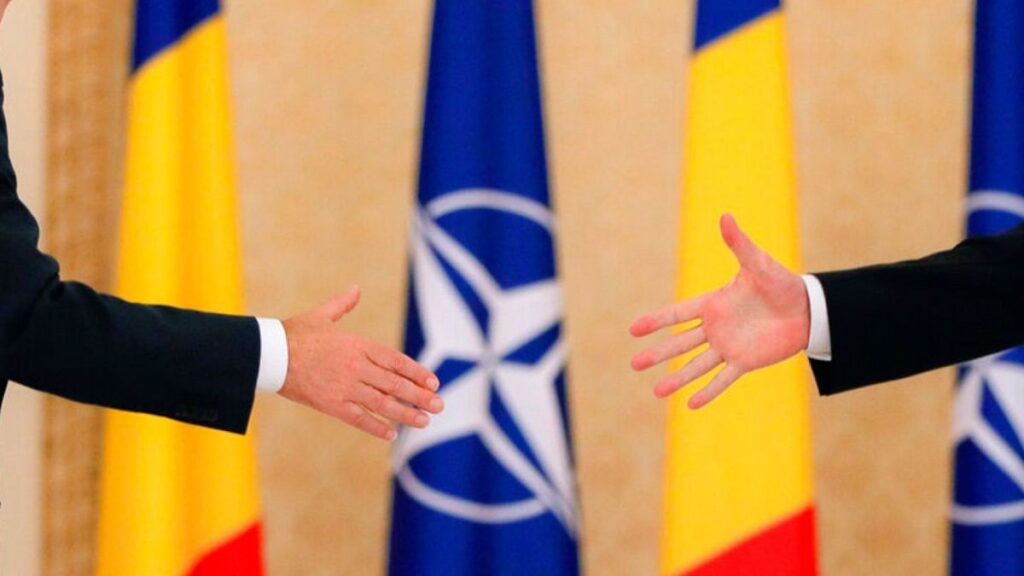Published on
Since Russia’s full-scale invasion of Ukraine, the Kremlin has intensified a specific kind of propaganda campaign, which consists of digitally altering and faking news reports from mainstream news outlets.
For instance, a news segment which was aired on the Euronews programme Good Morning Romania in February recently surfaced on pro-Russian social media accounts and Telegram channels.
They took a statement made by Cristian Diaconescu, head of Romania’s presidential chancellery, out of context, to make it seem like he supported the idea of Romania leaving NATO and joining Russia.
“Romania must join Russia. We don’t need NATO,” the caption superimposed onto the video reads.
The accounts that reposted the clip cut it short and inserted Romanian and Russian flags, as well as the communist hammer and sickle symbol, to further push a pro-Kremlin narrative.
In the real report broadcast in February, Diaconescu suggested that Moscow wants NATO to revert its security guarantees to what they were in 1997.
This would mean that countries that joined the alliance after 1997, such as Romania, wouldn’t be covered, according to the report.
In 1997, there were 16 NATO countries compared to today’s 32. Back then, the alliance was mostly confined to Western Europe, the US and Canada, sharing a relatively small border with Russia via the northeastern part of Norway.
Romania officially joined NATO in 2004, around the time many other European countries that had historically been under Soviet influence, or indeed forcibly incorporated into the Soviet Union, were doing the same, including Bulgaria and the Baltics.
Diaconescu also said that Russia wants to unilaterally establish a sphere of influence over Eastern Europe and force the West to accept it.
He later clarified that neither issue is up for discussion, and that Russia’s President Vladimir Putin first released the information at the beginning of his full-scale invasion of Ukraine, as potential measures he would accept to stop his offensive.
Romania’s Ministry of Foreign Affairs has rejected any of the allegations made in the fake Euronews report, stating that it amounts to a typical line of attack by pro-Russian actors.
Other Euronews bureaus have also been targeted, with fake Instagram and Telegram accounts which purport to be Euronews’ Uzbekistan bureaus also cropping up recently.
This comes as the pro-Russian Matryoshka campaign ramps up its efforts to spread disinformation in Moldova, ahead of its elections, often in the form of fake Euronews reports, in addition to videos allegedly created by other reputable news outlets.
EuroVerify has already debunked various instances of this, including false Euronews videos posted by fake journalists alleging criminality in Moldova, and others claiming that Romania cautioned French authorities over interference in the Romanian presidential election runoff.
Read the full article here


